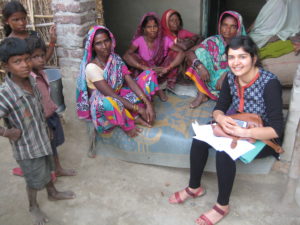Empowering through Light: Women and Solar Home Systems in Rural Bihar, India
When researchers asked questions about life before and after access to solar home systems, they were struck by the fact that none of the answers centered on the women’s own needs in their life.
by Shivi Chandna
In rural India, women in poor households spend a large part of their day performing basic tasks such as collecting fuel wood or kerosene, which keeps them away from employment or education opportunities and makes their lives more difficult. Access to electricity is therefore increasingly regarded as a means to improve their status in society. Although a large number of small-scale and community-based off-grid renewable energy projects are in place to provide access to electricity with a women-centric approach, research on the benefits to women has been largely anecdotal. A review of the evidence for the impact of rural electrification on women’s lives concluded that electricity access has a positive effect on women’s practical needs by reducing drudgery and providing better health, time-savings and income generation.





